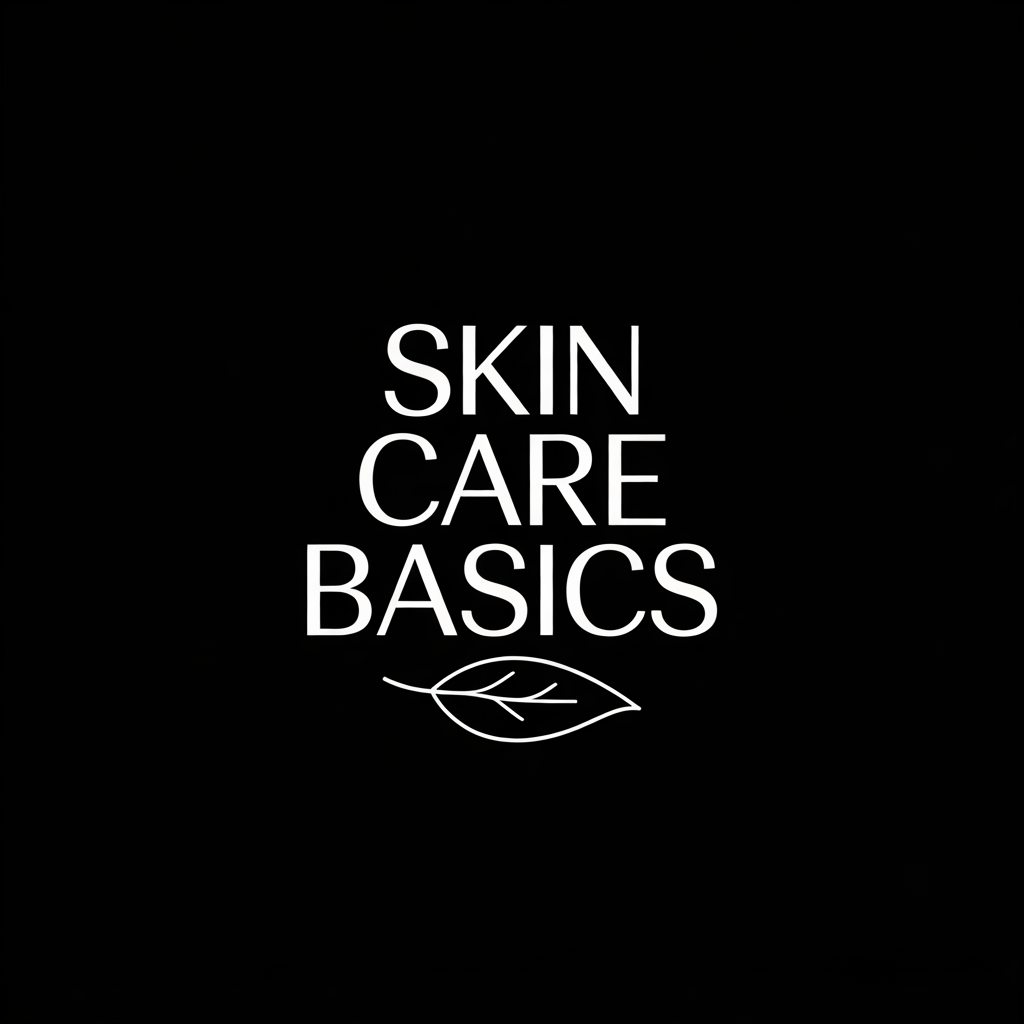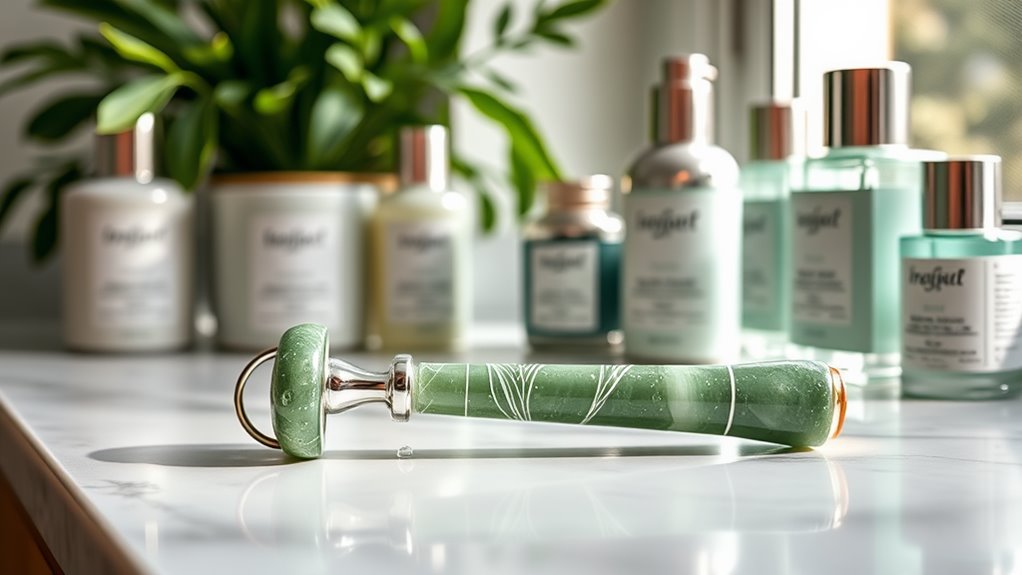Your Skincare Routine Is Missing This ONE Game-Changer
If your skincare routine feels a bit flat, you might be overlooking a crucial element. Many people underestimate the power of facial oils, which can transform your skin’s health and appearance. These potent blends not only hydrate but also nourish and protect your skin barrier. Curious about how to integrate this game-changing product into your regimen? Let’s explore the benefits and techniques that can elevate your skincare game to the next level.
Key Takeaways
- Incorporating facial oils can significantly enhance hydration and nourishment for a radiant complexion.
- They contain essential fatty acids and antioxidants that protect and improve skin resilience.
- Applying oils on damp skin boosts moisture absorption and effectiveness.
- Lightweight oils can balance natural oil production, making them suitable for all skin types.
- Regular use of facial oils leads to plump, youthful skin and improved texture over time.
The Importance of a Balanced Skincare Routine
You need to follow key skin care steps that work together to maintain your skin’s natural balance. Cleansing removes impurities, while toning prepares your skin for better absorption of serums and moisturizers. Exfoliating helps eliminate dead skin cells, promoting a smooth texture. Hydration is vital, as it keeps your skin plump and youthful. Finally, applying sunscreen protects against harmful UV rays. Skipping any of these steps can lead to issues like dryness, breakouts, or premature aging, making the essential skincare step crucial for optimal skin health. Prioritize a balanced routine, and watch your skin flourish with a radiant glow.
Understanding Your Skin Type
To create an effective skincare routine, you first need to understand your skin type. Identifying your skin’s unique characteristics will help you choose the right products and treatments. Whether you have oily, dry, combination, or sensitive skin, knowing these details is key to achieving your best complexion. Additionally, your skin type can be influenced by hormonal balances, which play a critical role in maintaining your skin’s health and appearance.
Identifying Skin Characteristics
Identifying your skin type is crucial for developing an effective skincare routine that truly works for you.
Start by observing how your skin behaves throughout the day.
Do you notice excess oiliness, dryness, or irritation?
Pay attention to how your skin reacts to products and environmental factors.
Conduct the simple tissue test: after washing your face, gently press a tissue against your skin.
If it picks up oil, you might’ve oily skin.
If it remains dry, you likely have dry skin.
Recognizing these characteristics helps you choose the right products, ensuring your skincare routine addresses your unique needs effectively.
Common Skin Type Types
Understanding the different skin types is vital for crafting a personalized skincare routine that meets your needs.
There are four main skin types: oily, dry, combination, and sensitive.
Oily skin often appears shiny and may be prone to breakouts, while dry skin can feel tight and flaky.
Combination skin features both oily and dry areas, usually with an oily T-zone and dry cheeks.
Sensitive skin may react negatively to products, leading to redness or irritation.
Identifying your skin type allows you to select the right cleansers, moisturizers, and treatments, ensuring your skincare routine effectively addresses your unique challenges and goals.
The Role of Hydration in Skincare
Hydration is essential for maintaining healthy, glowing skin, and it plays a crucial role in your overall skincare routine.
As you age, your skin’s hydration levels can decline, leading to dryness and fine lines.
Discover the best hydrating ingredients to keep your complexion youthful and vibrant. One ingredient that stands out for its ability to hydrate and plump skin is hyaluronic acid, making it a must-have in your skincare regimen.
Importance of Skin Hydration
Have you ever wondered why your skin feels tight or looks dull?
The answer often lies in hydration.
When your skin lacks moisture, it loses its elasticity and radiance, leading to an uneven tone and rough texture.
Proper hydration helps maintain your skin’s barrier function, protecting it from environmental stressors and preventing irritation.
Plus, hydrated skin can absorb other skincare products more effectively, maximizing their benefits.
Incorporating hydrating ingredients like hyaluronic acid or glycerin into your routine is essential.
Remember, drinking water isn’t enough; topical hydration is key to achieving that healthy, glowing complexion you desire.
Don’t underestimate the power of moisture!
Hydration and Aging Effects
How does hydration impact the aging process of your skin?
Proper hydration is essential for maintaining your skin’s elasticity and firmness.
When your skin is well-hydrated, it appears plumper and smoother, reducing the appearance of fine lines and wrinkles.
Dehydrated skin, on the other hand, can lead to a dull complexion and exacerbate signs of aging.
Additionally, hydration supports your skin’s barrier function, preventing moisture loss and protecting against environmental stressors.
By prioritizing hydration in your skincare routine, you can help your skin look radiant and youthful, combating the aging process effectively.
Don’t underestimate the power of hydration!
Best Hydrating Ingredients
Finding the right hydrating ingredients can transform your skincare routine and boost your skin’s health. Understanding these ingredients helps you choose products that deliver real results. Here’s a quick guide to the best hydrating ingredients:
| Ingredient | Benefits |
|---|---|
| Hyaluronic Acid | Binds moisture, plumps skin |
| Glycerin | Attracts water, softens skin |
| Aloe Vera | Soothes, hydrates |
| Squalane | Locks in moisture, balances oil |
| Ceramides | Strengthens barrier, retains hydration |
Incorporating these into your regimen ensures your skin stays hydrated and radiant all day long.
Spotting the Signs of Skin Damage
Here are three key indicators to watch for:
- Dryness and Flakiness: If your skin feels tight or looks rough, it may be lacking hydration or protection.
- Redness and Irritation: Persistent redness can signal sensitivity or inflammation, often due to environmental stressors.
- Uneven Texture: Bumps, enlarged pores, or rough patches indicate potential damage from sun exposure or neglect.
Recognizing these signs early helps you take action and protect your skin’s vitality. Additionally, skipping moisturizer can exacerbate dryness and flakiness and lead to more severe skin issues. Don’t ignore what it’s telling you!
The Game-Changer: Facial Oils
Facial oils are a game-changer in any skincare routine, offering a multitude of benefits that can transform your skin’s appearance and health.
These lightweight, nutrient-rich oils hydrate, nourish, and protect your skin, providing essential fatty acids and antioxidants.
They lock in moisture, making your complexion radiant and plump.
Unlike heavy creams, facial oils absorb quickly, leaving no greasy residue.
Whether you have dry, oily, or combination skin, there’s an oil tailored to your needs, balancing and soothing while enhancing your skin’s natural glow.
Adding facial oils can elevate your routine, giving you the healthy, luminous skin you’ve always wanted. Additionally, many essential oils offer effective skincare benefits that can rival expensive serums.
How to Incorporate Facial Oils Into Your Routine
Wondering how to seamlessly add facial oils to your skincare routine?
Start by choosing the right oil for your skin type. Then, follow these steps:
- Cleanse: Begin with a clean face to ensure better absorption of the oil.
- Apply: While your skin is still damp, use a few drops of oil. Gently massage it into your skin, focusing on areas that need extra hydration.
- Moisturize: Seal in the benefits by applying your regular moisturizer on top.
Incorporating facial oils this way enhances hydration and leaves your skin glowing without feeling greasy. Additionally, be aware that while essential oils can offer numerous benefits, they may also pose risks if not used properly.
The Long-Term Benefits of Using Facial Oils
Have you considered the lasting impact that incorporating facial oils can have on your skin? These oils aren’t just a trend; they offer remarkable long-term benefits.
Regular use can improve your skin’s hydration, resulting in a plump, youthful appearance. They also help balance oil production, making them suitable for all skin types, including oily and acne-prone skin.
Rich in antioxidants and essential fatty acids, facial oils protect against environmental damage and promote a healthy skin barrier. In fact, using oils rich in antioxidants and essential fatty acids can significantly enhance your skin’s resilience over time.
Over time, you’ll notice a reduction in fine lines and improved texture.
Embrace facial oils now, and your skin will thank you in the years to come.

